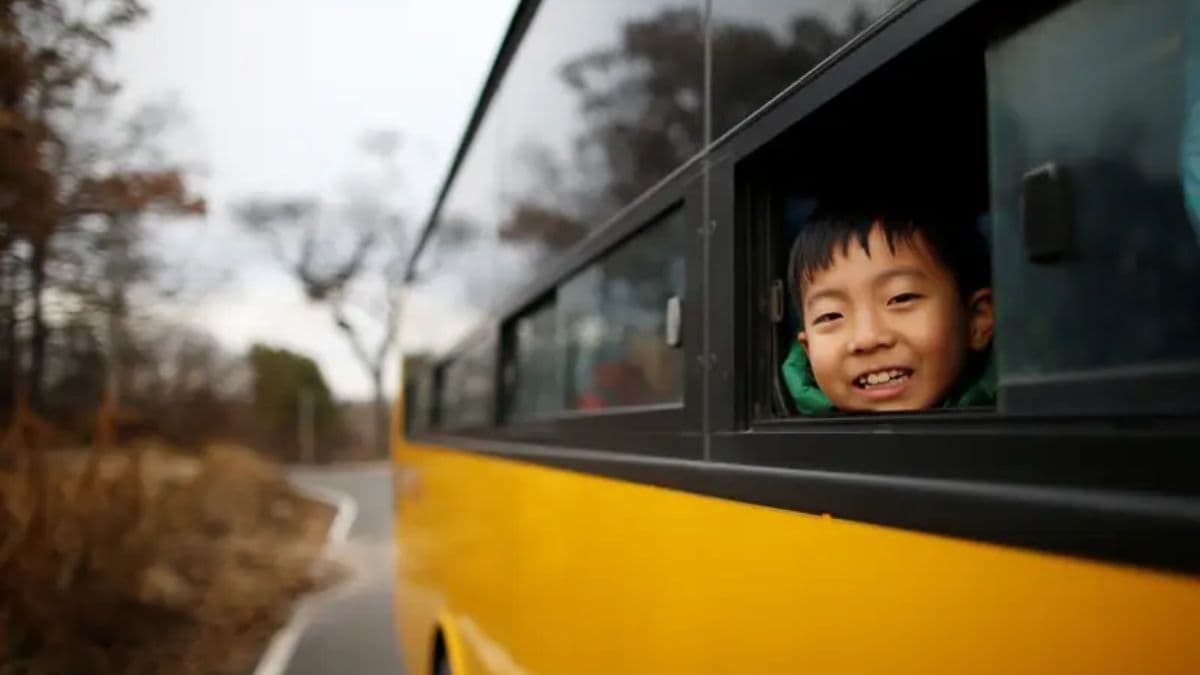In one of Seoul’s most affluent neighbourhoods, four-year-old children are being timed as they write five-paragraph English essays in just 15 minutes.
These gruelling assessments are part of the admissions process for elite English-language kindergartens in Daechi-dong, a neighbourhood in the capital’s wealthy Gangnam district often described as the nerve centre of South Korea’s education arms race.
The tests, often pitched at levels far beyond what’s considered age-appropriate, are a sign of the mounting academic pressure on South Korea’s youngest learners. For many parents, gaining entry into these prestigious kindergartens marks the first step in an unforgiving journey towards a place at one of the country’s top three universities: Seoul National, Korea, and Yonsei– collectively known as “SKY”.
Professor Choi Myung-hee, an expert in early childhood education at Shingu College, attributes the phenomenon to the rise of overbearing “helicopter parents” who are excessively concerned about their children’s success. These parents, born in the 1960s and 1970s, experienced South Korea’s rapid development and now direct their anxieties towards ensuring their children’s futures,
South China Morning Post reported.
Education, anxiety and inequality
South Korea’s rapid transformation from post-war poverty to economic powerhouse was fuelled in part by an obsession with academic achievement. The result today is a hyper-competitive education system, one that critics argue entrenches inequality and sacrifices childhood to test prep.
Private after-school academies, or hagwons, are central to this system. Often compared to cram schools, hagwons are now a multi-billion-dollar industry– offering everything from advanced science coaching to medical school entrance exam prep, even for primary students.
A recent government survey found that parents of children under the age of six spent nearly 815 billion won (US$558 million) on private education in just three months last year. Almost half of all children in this age group were enrolled in some form of private tutoring.
It’s not just a Seoul problem, says Kang Young-mi, a mother from Daejeon, a city south of the capital. “If Seoul has Daechi-dong, we have Dunsang-dong.”
Kang says some parents she knows have gone as far as purchasing studio apartments in these neighbourhoods just so their children can qualify for enrolment. Kindergarten promoters, she adds, routinely pitch parents with test-prep workbooks costing thousands of dollars.
“I felt like I would be letting my daughter down if I did not hear what they were saying, so I ended up spending thousands of dollars on these workbooks,” she says.
The road to Suneung
At the heart of this high-stakes culture is the Suneung– South Korea’s notorious eight-hour national college entrance exam, taken just once a year. A student’s entire academic career culminates in this test, where scores are ranked relative to peers, making even the tiniest margin the difference between admission to a top university or being shut out.
This brutal calculus drives more than 80 per cent of students into hagwons. Last year alone, South Korean families spent a staggering 29.2 trillion won (US$20 billion) on private education, according to government data.
And the impact is felt far beyond academics. South Korea consistently reports the highest suicide rates among developed countries, with academic pressure frequently cited as a contributing factor.
Kang, who now leads the National Association of Parents for Cham-Education, says her views changed in the wake of the 2014 Sewol ferry disaster, which claimed the lives of 250 school students. Since then, she has become a vocal advocate for education reform.
The present system in Korea teaches children to compete ruthlessly – with those whose parents can afford the best hagwons being most likely to succeed.
Kang’s group is calling for the Suneung’s relative scoring system to be replaced with a pass-fail model, which they believe would reduce the suffocating pressure and curb the social divides driven by education spending.
A childhood under pressure
According to Statistics Korea, families in the top income bracket spend an average of 676,000 won (US$460) per child each month on private education. Even those in lower-income households spend over 200,000 won.
The pressure cooker environment fosters not only burnout but also emotional detachment. “Children are taught, one way or another, that they must climb higher — even if it means stepping on someone else,” Kang says. They view classmates as competition, not friends. Empathy disappears.
Education reform remains politically sensitive in South Korea, where academic credentials are often seen as the bedrock of professional and social advancement.
